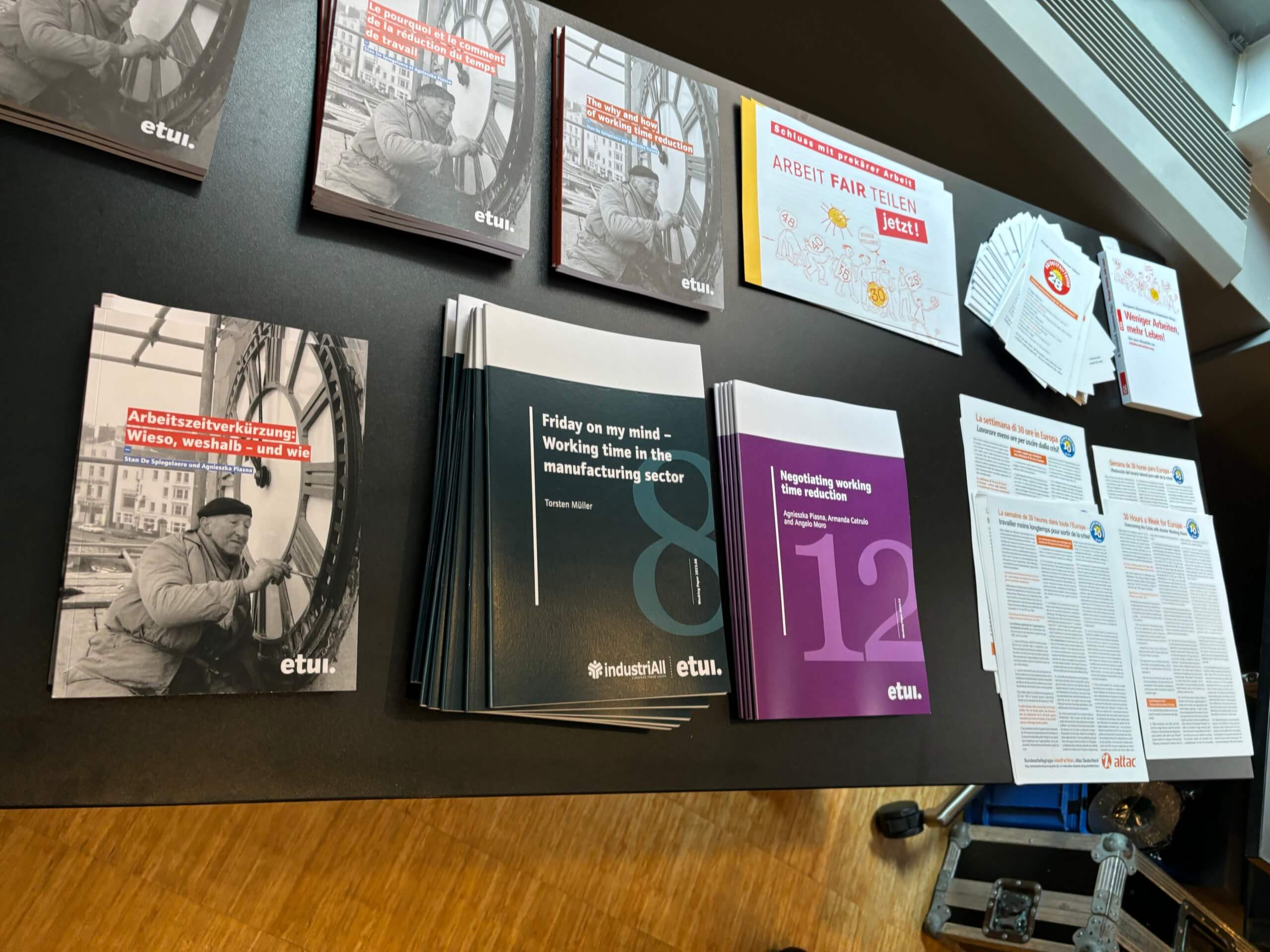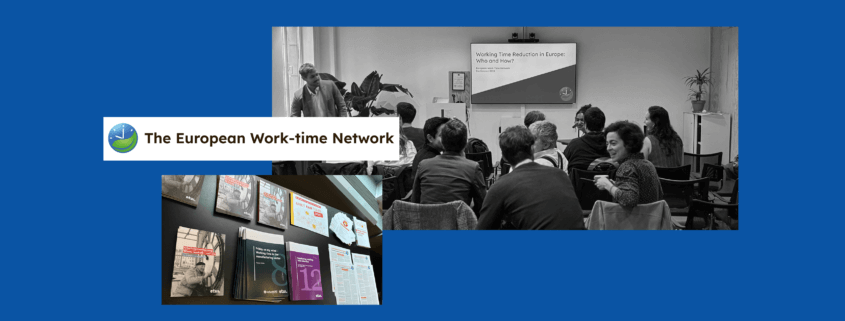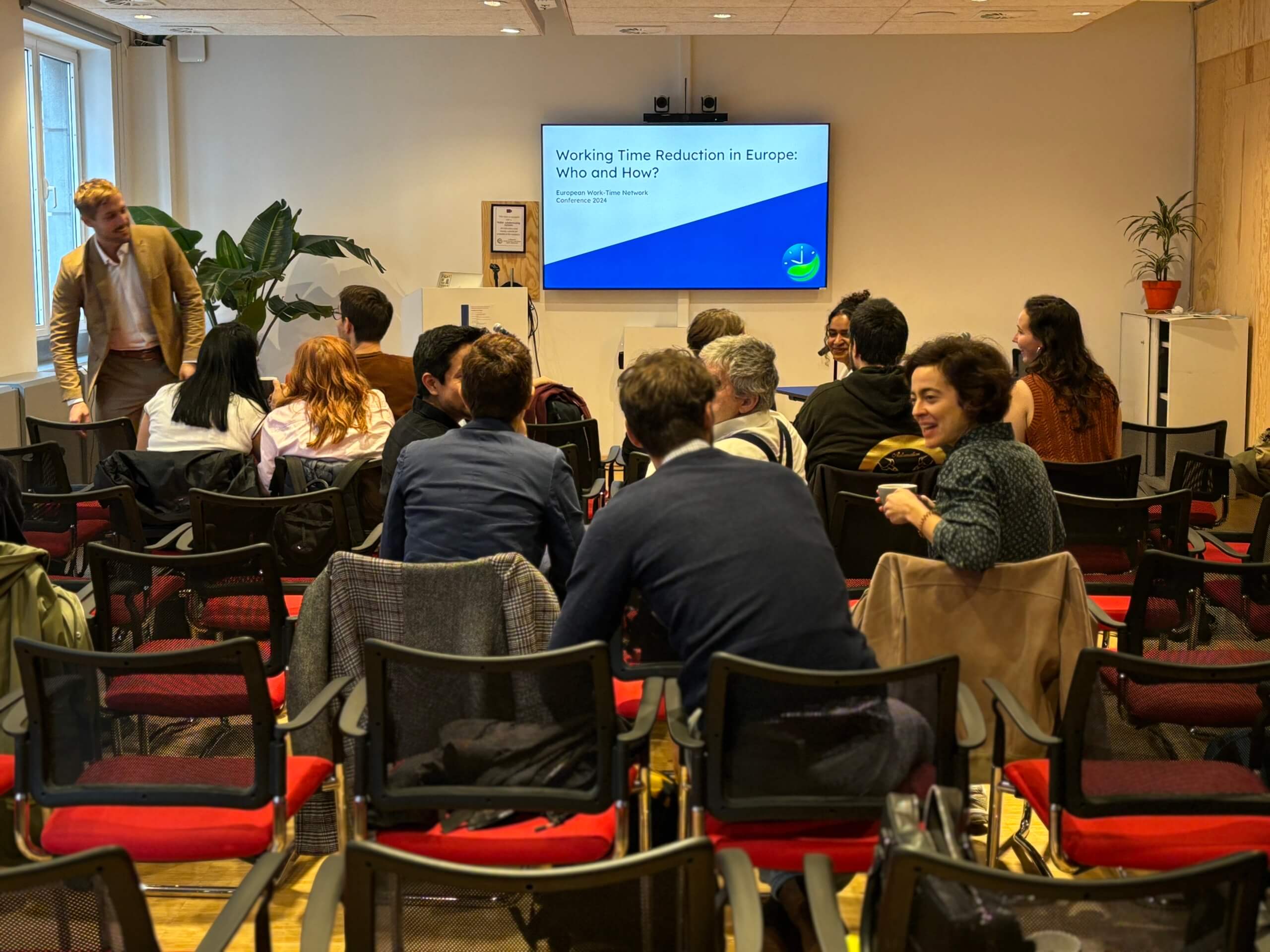Managers are called to embrace time-reduction debate at a key Brussels conference
On October 17th, 2024, CEC European Managers attended the first day of the European Work-Time Network (EWTN) conference in Brussels.
At the beginning of the conference, the audience was asked whether trade unions should focus on reducing working time or achieving better wages.
35% of people who voted thought unionists should work for a wage increase, 48% preferred reduced working hours, and 11% thought both were achievable.
These figures changed drastically by the end of the conference
After listening to several panelists from Academia and social movements, participants were asked again, and the vast majority voted for trade unions to fight for both time reduction and better wages, as the two seemed possible.
The conference brought together policymakers, trade union leaders, academics, and other stakeholders to discuss the future of European working time.
The event started with remarks from Katrin Langensiepen, MEP for the Greens, who highlighted that reduced working hours could benefit specific sectors, offering solutions to employee burnout and enabling workers to spend more quality time with their families.
As productivity and flexibility continue to shape modern economies, Langensiepen emphasized that moving to a four-day workweek could significantly improve the quality of life for many workers.
Reducing working hours could be a good idea in certain jobs, as it would allow workers to prevent burnout, invest in health, and spend family time.
Katrin Langensiepen
MEP for the Greens
In Europe, some companies organise to allow workers to work less than 40 hours a week.
For example, Anke Thorein, a trade unionist in the collective bargaining policy department of the United Services Trade Union of Germany, explained, “Some German banks have collective agreements that have reduced weekly hours to 35h, and we are also seeing some collective agreements where employees can choose whether they want more money or more time.”
It seems clear that future policies regarding time reduction and management will depend on the sector they affect and the prerogatives they entail.
“In the social sector, time reduction is being implemented in some cases, and we have collective agreements where employees can choose whether they want more money or more time,” added Thorein.

That is possibly the crucial question. “Is it possible to have less time and more money?” asked Agnieszka Piasna from the European Trade Union Institute.
Piasna showcased that the current working time model—40 hours across 5 days per week—”is not fit for purpose in economic terms” and added, “Long hours of work are associated with poor job quality, too.”
As an excellent example to illustrate that relation, Piasna explained that in some Italian manufacturing companies, bonuses went together with working time reduction, leading to better productivity. Some studies also show that time reduction reduces sick leaves by 65%.
Germany seems to be taking the lead in demanding time reduction. Up to 80% of German employees want a four-day week.
Some studies show that time reduction reduces sick leaves by 65%
The support among German women is perhaps more substantial, as highlighted by Silke Raab, Head of the Unit for equality-oriented family policy in the Department for Women, Equality and Family of the DGB Federal Executive.
“27% of women working part-time have reduced their working hours due to childcare, while only 5% of fathers have done the same”, Raab said, explaining that “the gender care gap in Germany is 44%.”
At the edge of the European Union, there’s a country where time reduction seems to have spread widely. “Iceland used to have the longest working hours in Europe, but now we are an example,” said Ágúst Ólafur Ágústsson from the Union of Care Workers of this Artic country.
The gender care gap in Germany is 44%
According to Ágústsson, “the implementation of reduced working hours has proved beneficial because the preparation has worked well, meaning the conversations between employers and employees.”
This demonstrates that managers can help facilitate a win-win scenario for both employees and employers, ensuring productivity does not suffer as working hours are adjusted.
Following that thread, Francisca Mullens from Vrije Universiteit, Brussels, highlighted that a well-implemented time-reduction strategy requires careful preparation and close collaboration between management and employees.
European managers are seen as critical players in designing flexible models that cater to the diverse needs of modern workplaces.

Time-reduction leadership: A Crucial role for European managers
As the conference drew close, it became evident that European managers were uniquely positioned to drive the conversation on reducing working time.
Whether it involves negotiating collective agreements that balance wage increases with time reductions or fostering an environment that supports a four-day work week, managers will play a central role in ensuring that the shift towards reduced working hours aligns with employee well-being and organisational objectives.
As representatives of managerial interests across Europe, CEC European Managers’ members are thus called by the rest of the employees’ organisations to actively engage in this debate, working closely with policymakers, social partners, and unions to explore innovative ways to implement time-reduction policies.
As Europe’s labour market continues to evolve, leadership in this area will be essential in fostering a sustainable and productive future of work.
European managers are increasingly being called upon to drive innovation in work-life balance while maintaining organisational efficiency and productivity.
Managers are crucial to negotiating with employers and effectively implementing time-reduction strategies, ensuring productivity, inclusion, and equality.





